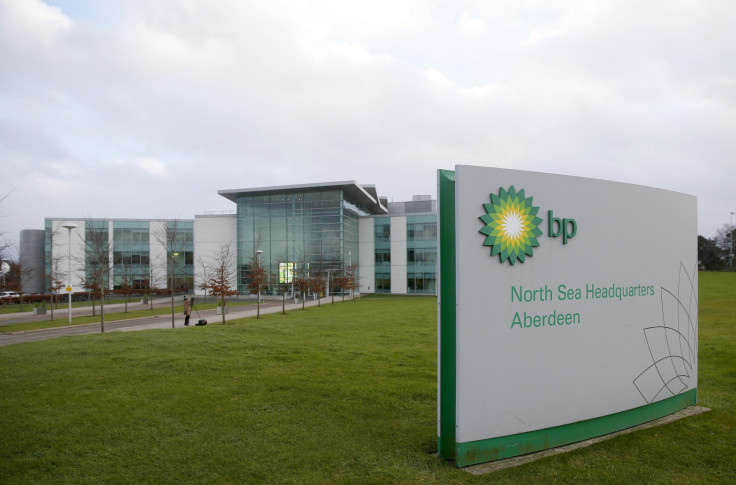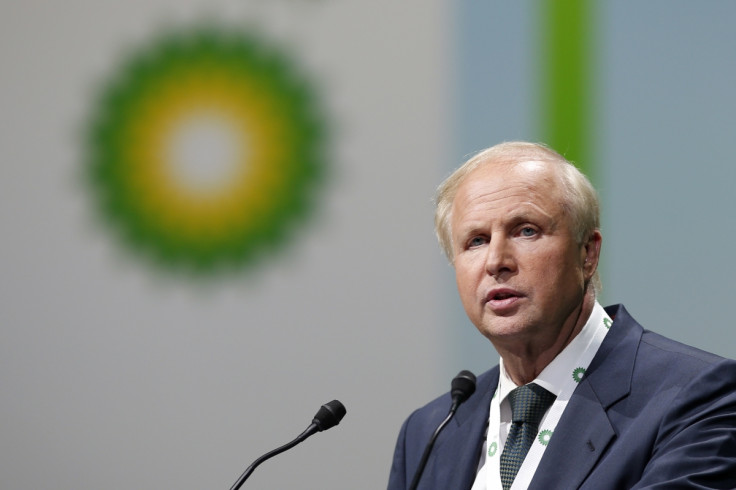Has oil giant BP finally got its house in order?
Oil giant can focus on growth in trying times after CEO Bob Dudley says it is moving on from Deepwater Horizon tragedy

As the oil and gas sector headwinds continue to batter BP, there should be some relief within the company's ranks that chief executive Bob Dudley is claiming to have drawn a line under the fallout from the Deepwater Horizon rig explosion of April 2010.
For some, especially those directly impacted by the disaster, that fateful day when the explosion at the company's Macondo oil well in the Gulf of Mexico claimed the lives of 11 people and triggered the worst oil spill in US history, must bring recurring nightmares.
However, the protracted aftermath and its political, corporate and legal implications was a sobering experience for BP as a corporate entity as well. Earlier this month, it announced that the amount spent on expenses and compensation for the disaster would amount to a total of $62bn (£47.2bn); just over half of the company's current market capitalisation.
The figure includes a $5.2bn charge BP booked in the second quarter of this year after reaching individual settlements with the US authorities, the tens of thousands of people affected by the spill, and a number of investors.
In a trading update on Tuesday (26 July), Dudley said the latest settlement was a sign the company has "finally drawn a line under the material liabilities for Deepwater Horizon." The boss' take is reassuring for investors, especially pension funds with exposure to BP's shares.
For all intents and purposes, the company is a leaner, fitter outfit and a very different corporate beast to what it was six years ago. Forced by circumstances and a need to raise capital, BP went down the asset divestment trail quite proactively, well ahead of the market curve, and managed to extract much better non-core asset sale prices before the oil price decline of 2014 took hold.
In the interim, despite exaggerated claims about its viability as a company, BP weathered torrid headlines, market doubts and severe financial strain to hold its own. I remember being asked on CNBC in April 2011, on the first anniversary of the tragedy, whether I thought BP actually had a future? Furthermore, would it maintain US operations and could Deepwater Horizon's fallout prove to be a fatal blow.
With some sense of vindication, I reiterate what I said then – ie. BP would not be giving up on the US market; it would see viable emerging market tie-ups; play to its exploration and production operational strength; expand natural gas plays and strategically divest US non-core downstream (refining and marketing) assets.
As I pen my thoughts halfway through 2016, all of the above has transpired. As if it was ever in doubt, BP is still a going independent concern. It remains a constituent of the FTSE 100 and has not been swallowed up by a bigger entity. Neither did it need a corporate white knight in the shape of Chevron to come forward, nor did ExxonMobil launch a hostile takeover bid for it.
BP maintains its presence in the US, has tied-up with Rosneft of Russia, is increasing natural gas exploration (eg. Oman) and has continued asset divestment at pace, having already sold $45bn of assets before the June 2014 oil slump took hold.
Agreed, the slump has hit the company hard, but Dudley became one for the first 'big oil' bosses to come straight out of the blocks as early June 2015 and declare that BP would budget for a $60-per-barrel oil price for the next three financial years, while bracing for worse case scenarios.
Other big oil bosses eventually followed suit, but Dudley had demonstrated yet again that BP was more aware when it came to contingency planning. After all, it had in Deepwater Horizon the mother of all contingencies to deal with and one that will continue to carry an indelible mark on its corporate history.
Much of the market is taking Dudley's assertion that BP had drawn a line under Deepwater Horizon at face value. Fitch Ratings says BP's 'A'/Stable rating would be maintained. "The company's latest $5.2bn payout over Deepwater Horizon would translate into slightly higher financial leverage, but this is offset by the elimination of all material uncertainties around the 2010 disaster," the ratings agency added.

Fitch also estimates that in the 2016-19 period, BP's annual average cash outflows associated with the accident will be around $2bn, including the payment installments under the $20.8bn settlement of US federal, state and local government claims spread over 16 years.
"We also assume that the additional $5.2bn charge will crystallise into cash outflows in 2016-19, with tax deductions reducing the actual cash outflows by 25%. We expect that a significant part of 2016-19 payments should be covered by divestments, " Fitch added.
Were the oil price to gradually creep up from an average of $35 per barrel in 2016 to $65 in 2019, BP is well placed to hold its own in the oil and gas world.
Boss Dudley's "much stronger outlook for BP" includes focus returning to growth with a pipeline of projects – currently nearing 70% completion – adding 500,000 barrels of oil equivalent per day (boepd) by the end of 2017, ramping it up to 800,000 boepd by the end of the decade.
Of course, the sector faces challenges duly reflected in BP's latest trading update. In the three months to the end of June, it posted a 45% year-over-year decline in underlying replacement cost profit to $720m. The figure was lower than the $729m analysts' forecast but higher than the $532m recorded in the previous three months.
Underlying pre-tax replacement cost profits from the group's downstream business, which includes refining and marketing operations, were $1.5bn, compared with a loss of $1.9bn a year ago. Meanwhile, the upstream business – which comprises the exploration and production divisions – swung from a $747m first quarter loss to a profit of $29m. The figure, however, was way lower than the $494m recorded in the corresponding period last year.
While it is early days, Richard Hunter, head of research at Wilson King Investment Management, suggests BP appears to be a revitalised company. "The reaction of the share price has shown that this may well be the case. Over the last year, BP has added 12%, as compared to a 2% hike for the wider FTSE100, whilst the market consensus of the shares as a buy also indicates confidence for the future of the oil behemoth."
A return of market confidence would be music to Dudley's ears. For many relieved investors, just the reassurance that BP is moving on from the fallout of Deepwater Horizon would be as welcome.
Gaurav Sharma is the Business Editor of IBTimes UK. He has been a financial journalist for over 15 years, with a core specialisation in macroeconomics and commodities. Follow Gaurav on Twitter here.
© Copyright IBTimes 2025. All rights reserved.






















